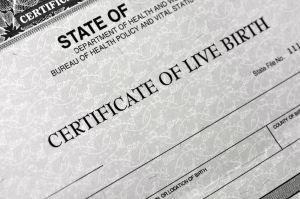630-462-9500
After Hour New Client Telephone Number 630-690-6077
1776 S. Naperville Road, Building B, Suite 202,
Wheaton, IL 60189
Recent Blog Posts
Is it Advantageous to File for Divorce First in Illinois?
 Marriages end for innumerable reasons. Sometimes, one spouse wants the divorce, while the other spouse believes that the marriage is salvageable. Other times, the spouses both agree that it is time to call it quits. Whatever your situation, you may have questions about the divorce process and how to get started. One particular question you may be asking yourself is, “Does it matter which spouse files for divorce?”
Marriages end for innumerable reasons. Sometimes, one spouse wants the divorce, while the other spouse believes that the marriage is salvageable. Other times, the spouses both agree that it is time to call it quits. Whatever your situation, you may have questions about the divorce process and how to get started. One particular question you may be asking yourself is, “Does it matter which spouse files for divorce?”
The Basics of Filing for Divorce in Illinois
In Illinois, a divorce is called a Dissolution of Marriage. The spouse who files the Petition for Dissolution of Marriage is the petitioner, and the other spouse is the respondent. To file for divorce in Illinois, at least one of the spouses must have lived in Illinois for at least 90 days prior to filing the petition.
Illinois is a “no-fault” divorce state. This means that the spouses will not be asked to assign blame for the marriage ending. The only grounds for divorce in Illinois is “irreconcilable differences.” When determining the terms of a divorce, Illinois courts do not consider which spouse is the petitioner and which is the respondent. Both spouses are treated equally under the law.
What Should I Do if I Believe My Ex Is a Danger to Our Children?
 When parents divorce, they will typically share parental responsibilities and parenting time. A shared custody arrangement can be a great way to ensure that a child gets to spend time with both of his or her parents. Illinois courts typically favor parenting schedules that keep both parents in the child's life. However, there are some situations in which spending time with a parent may not be in the child's best interests. If you are an unmarried or divorced parent, and you have concerns about your child's safety during the other parent's parenting time, you should know that you have the right to ask for his or her parenting time to be restricted.
When parents divorce, they will typically share parental responsibilities and parenting time. A shared custody arrangement can be a great way to ensure that a child gets to spend time with both of his or her parents. Illinois courts typically favor parenting schedules that keep both parents in the child's life. However, there are some situations in which spending time with a parent may not be in the child's best interests. If you are an unmarried or divorced parent, and you have concerns about your child's safety during the other parent's parenting time, you should know that you have the right to ask for his or her parenting time to be restricted.
Take Steps to Protect Your Children's Immediate Safety
If there is an immediate threat to your child's well-being, do not hesitate to take action. Your child's safety comes first. If you believe your child is in a situation in which they could be injured or killed, call 911. You may also take steps to obtain an order of protection that will prevent the other parent from committing any actions that could harm you or your child.
When Should I Introduce a New Partner to My Children After Divorce?
 Whether you are planning to get a divorce, or you have already begun the process of ending your marriage, you have probably thought about dating. One of the silver linings of divorce is that the spouses are free to search for new romantic partners who are a better match for them. Getting back into the dating world after being married can be exciting. However, when you are a parent, there are additional issues to consider. One of these issues is when to introduce a new partner to your children. There is no perfect time to introduce a new partner, but there are certain considerations you could keep in mind when dating after divorce.
Whether you are planning to get a divorce, or you have already begun the process of ending your marriage, you have probably thought about dating. One of the silver linings of divorce is that the spouses are free to search for new romantic partners who are a better match for them. Getting back into the dating world after being married can be exciting. However, when you are a parent, there are additional issues to consider. One of these issues is when to introduce a new partner to your children. There is no perfect time to introduce a new partner, but there are certain considerations you could keep in mind when dating after divorce.
Wait Until After the Divorce Is Complete
Most experts suggest waiting to date until after your divorce is finalized. However, no one can predict when they will meet the right person. If you already have a new romantic interest, and your divorce is not complete, it may be best to avoid introducing the new partner to your children until the divorce is finalized.
Should I List My Child's Father on Their Birth Certificate?
 If you are an unmarried mother who is expecting a child, you probably have several questions and concerns. If your pregnancy was unexpected, or if you are no longer in a relationship with your baby's father, you may wonder whether you should tell the father about the pregnancy or list him on your baby's birth certificate. You may also wonder if you will be entitled to child support or if your child's father will have a right to spend time with the child after he or she is born. The term “paternity” refers to a father's legal relationship to his child. There are several benefits to establishing paternity in Illinois.
If you are an unmarried mother who is expecting a child, you probably have several questions and concerns. If your pregnancy was unexpected, or if you are no longer in a relationship with your baby's father, you may wonder whether you should tell the father about the pregnancy or list him on your baby's birth certificate. You may also wonder if you will be entitled to child support or if your child's father will have a right to spend time with the child after he or she is born. The term “paternity” refers to a father's legal relationship to his child. There are several benefits to establishing paternity in Illinois.
Paternity of a Child for an Unmarried Father
When a married woman has a child, the law presumes the woman's husband to be the father. The couple does not need to take extra steps to establish paternity before writing the father's name on the birth certificate. If a mother is not married, there is no presumption about the child's father. Paternity or legal parentage must be established by signing a Voluntary Acknowledgement of Paternity (VAP) form. Paternity may also be established through the courts or via an administrative process through the Illinois Department of Healthcare and Family Services.
How Will Cheating or Infidelity Affect an Illinois Divorce?
 Cheating and affairs in a marriage often lead to divorce. In some cases, spouses file for divorce immediately after the affair comes to light. In other cases, a couple may try to salvage their marriage after an affair, but they may ultimately decide that too much damage to the relationship has occurred. If you have found yourself in this situation, you may be unsure of what to do. Whether the unfaithful partner was you or your spouse, you probably have questions about how marital infidelity can influence an Illinois divorce. Regardless of the exact circumstances, infidelity can lead to additional contention and confusion in a divorce. An experienced divorce lawyer can help.
Cheating and affairs in a marriage often lead to divorce. In some cases, spouses file for divorce immediately after the affair comes to light. In other cases, a couple may try to salvage their marriage after an affair, but they may ultimately decide that too much damage to the relationship has occurred. If you have found yourself in this situation, you may be unsure of what to do. Whether the unfaithful partner was you or your spouse, you probably have questions about how marital infidelity can influence an Illinois divorce. Regardless of the exact circumstances, infidelity can lead to additional contention and confusion in a divorce. An experienced divorce lawyer can help.
Grounds for Divorce
Illinois is a no-fault divorce state. The state's laws previously included fault-based “grounds” or reasons for divorce, such as abandonment, cruelty, and infidelity. However, Illinois has since eliminated these grounds. Now, the only grounds available when filing for divorce is “irreconcilable differences.” Infidelity or other reasons for ending their marriage will not be included in a spouse's petition for divorce.
3 Myths About Divorce Mediation
 If you are ready to end your marriage, you are probably looking for ways to eliminate drama, reduce legal costs, and reach a fair divorce settlement. In many cases, divorce mediation can help couples reach a resolution about the terms of their divorce without going to court. Divorce mediation is a process during which a couple works on addressing and resolving their outstanding legal issues with the help of a specially-trained mediator. During mediation, you and your spouse may discuss the division of marital property and debts, the allocation of parental responsibilities and parenting time, spousal maintenance, and other issues. However, it is important to understand what divorce mediation is and is not before deciding to use mediation as your primary means of reaching a resolution.
If you are ready to end your marriage, you are probably looking for ways to eliminate drama, reduce legal costs, and reach a fair divorce settlement. In many cases, divorce mediation can help couples reach a resolution about the terms of their divorce without going to court. Divorce mediation is a process during which a couple works on addressing and resolving their outstanding legal issues with the help of a specially-trained mediator. During mediation, you and your spouse may discuss the division of marital property and debts, the allocation of parental responsibilities and parenting time, spousal maintenance, and other issues. However, it is important to understand what divorce mediation is and is not before deciding to use mediation as your primary means of reaching a resolution.
What Happens if I Fall Behind on My Child Support Payments?
 Child support payments are intended to provide a parent with the financial support he or she needs to cover housing, education, and other child-related costs. Illinois has adopted the “Income Shares” model for child support calculations. The amount a parent pays in child support in Illinois is typically based on the difference between the parents' net incomes. This calculation method is designed to ensure that payments provide for the child's needs and are reasonably affordable for the paying parent or “obligor.” However, circumstances can change, and obligor parents may find themselves in a situation where they cannot fulfill their child support obligations. If you are a parent who has fallen behind on child support payments in Illinois, you may wonder what types of consequences you may face. You may also question whether there is anything you can do to remedy the situation.
Child support payments are intended to provide a parent with the financial support he or she needs to cover housing, education, and other child-related costs. Illinois has adopted the “Income Shares” model for child support calculations. The amount a parent pays in child support in Illinois is typically based on the difference between the parents' net incomes. This calculation method is designed to ensure that payments provide for the child's needs and are reasonably affordable for the paying parent or “obligor.” However, circumstances can change, and obligor parents may find themselves in a situation where they cannot fulfill their child support obligations. If you are a parent who has fallen behind on child support payments in Illinois, you may wonder what types of consequences you may face. You may also question whether there is anything you can do to remedy the situation.
Tips for Sharing Custody of Your Children During the Holidays
 This holiday season is shaping up to be like none other. If you are in the middle of a separation or divorce, your holiday season may be especially complicated. Sharing custody of children with a soon-to-be ex-spouse is hard enough, but sharing custody during the holidays can be even harder. Keep the following tips and suggestions in mind to help your holiday season go as smoothly as possible for you and your children:
This holiday season is shaping up to be like none other. If you are in the middle of a separation or divorce, your holiday season may be especially complicated. Sharing custody of children with a soon-to-be ex-spouse is hard enough, but sharing custody during the holidays can be even harder. Keep the following tips and suggestions in mind to help your holiday season go as smoothly as possible for you and your children:
Plan the Details in Advance
When a couple with children files for divorce in Illinois, they have 120 days to create and submit a “parenting plan.” This plan will describe how they will make major decisions about the child, who the child will live with on what days, how the child will be transported between homes, and much more. If you have not yet filed for divorce, or if you have not made any decisions about the allocation of parental responsibilities and parenting time, you may only have a casual agreement about which parent the children will see on which days. This can lead to miscommunication and frustration. It is better to plan your holidays in advance. Decide where the children will stay on what days, when they will be picked up and dropped off, and other details, and then put these decisions in writing.
What Is the “Safe Haven Law” in Illinois?
 Being a parent is one of the greatest responsibilities in the world. Parents who worry about their ability to take on this tremendous responsibility may make the decision to relinquish their parental rights and place their children for adoption. Many parents choose to do this because they realize that financial problems, addictions, or other concerns will prevent them from giving their child the life he or she deserves. However, some parents are not in a position to go through the traditional methods of adoption, and they may choose to take advantage of Illinois' “Safe Haven Law.” If you are considering adopting a child in Illinois, you may want to learn about this law and how it can affect your adoption.
Being a parent is one of the greatest responsibilities in the world. Parents who worry about their ability to take on this tremendous responsibility may make the decision to relinquish their parental rights and place their children for adoption. Many parents choose to do this because they realize that financial problems, addictions, or other concerns will prevent them from giving their child the life he or she deserves. However, some parents are not in a position to go through the traditional methods of adoption, and they may choose to take advantage of Illinois' “Safe Haven Law.” If you are considering adopting a child in Illinois, you may want to learn about this law and how it can affect your adoption.
The Illinois Abandoned Newborn Infant Protection Act
Making the decision to give up an infant is one of the hardest things a person can do. Parents may not only mourn the loss of their child, they may also fear retribution for giving the infant up for adoption. Sometimes, a mother chooses to relinquish her parental rights at the hospital immediately after the infant is born. Other times, a mother cannot or will not place the baby for adoption in the usual manner.
What Methods Do Spouses Use to Hide Property in a Divorce?
 When two people join their lives in marriage, “yours” and “mine” become “ours.” According to Illinois law, spouses have the right to an equitable division of marital assets during divorce. Any property that was accumulated during the marriage by either spouse is part of the marital estate and subject to division. This property may include household items, jewelry, vehicles, and other physical property, as well as retirement accounts, investments, business interests, and other complex assets. Spouses who do not want to share the marital estate fairly may try to manipulate the asset division process during divorce by hiding assets or property. Some of the most common methods of concealing assets include:
When two people join their lives in marriage, “yours” and “mine” become “ours.” According to Illinois law, spouses have the right to an equitable division of marital assets during divorce. Any property that was accumulated during the marriage by either spouse is part of the marital estate and subject to division. This property may include household items, jewelry, vehicles, and other physical property, as well as retirement accounts, investments, business interests, and other complex assets. Spouses who do not want to share the marital estate fairly may try to manipulate the asset division process during divorce by hiding assets or property. Some of the most common methods of concealing assets include:




















